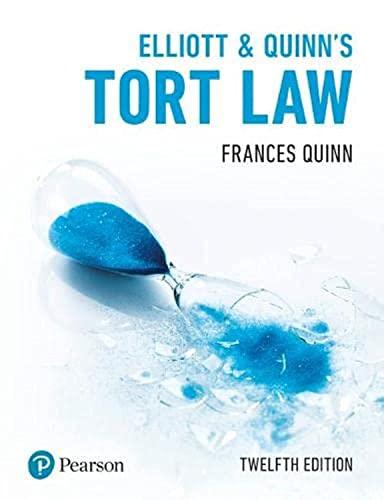Question
Do you agree with the court's decision? Why or why not? Facts of the case Randy Moore pled no-contest to felony murder in an Oregon
Do you agree with the court's decision? Why or why not?
Facts of the case
Randy Moore pled no-contest to felony murder in an Oregon trial court and sentenced to twenty-five years imprisonment. After exhausting his post-conviction state court remedies, Mr. Moore petitioned for habeas corpus relief in an Oregon federal district court. Mr. Moore argued that his trial counsel was ineffective for failing to recognize that his taped confession was obtained unconstitutionally. The district court denied the petition.
On appeal, the U.S. Court of Appeals for the Ninth Circuit reversed and granted the petition. The court held that Mr. Moore's counsel's failure to suppress Mr. Moore's confession was both constitutionally deficient and prejudicial under the standard set forth inStrickland v. Washington. The court was careful to note that even the state conceded the means by which the state elicited Mr. Moore's confession were unconstitutional because Mr. Moore's request for counsel had been ignored by the police.
Question: Does a lawyer provide inadequate representation by failing to seek suppression of a client's confession before he pleads no contest to murder?
Ruling: No. The court reversed the appeals court decision, holding that defense counsel was not ineffective and that Moore was not in any event prejudiced by his counsel's actions. Justice Anthony Kennedy authored the opinion for the court with Justice Ruth Bader Ginsburg filing a concurring opinion. Justice Elena Kagan did not participate in the consideration or decision of the case.
Step by Step Solution
There are 3 Steps involved in it
Step: 1

Get Instant Access to Expert-Tailored Solutions
See step-by-step solutions with expert insights and AI powered tools for academic success
Step: 2

Step: 3

Ace Your Homework with AI
Get the answers you need in no time with our AI-driven, step-by-step assistance
Get Started


